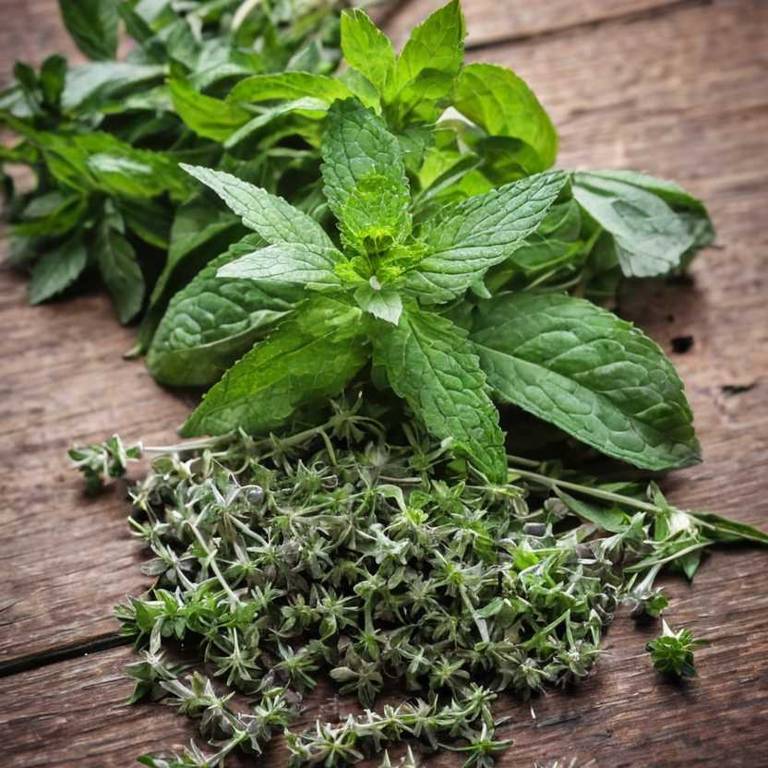By Leen Randell
Updated: Jul 05, 2024
What Are The Medicinal Properties Of Mentha Spicata (Spearmint)?

Mentha spicata, also known as spearmint, has health benefits such as reducing nausea and digestive issues, while also acting as an anti-inflammatory and antispasmodic agent.
The medicinal constituents of spearmint include menthone, menthol, and limonene, which contribute to its therapeutic properties. Spearmint can be prepared into teas, infusions, or tinctures, making it an accessible treatment option. However, excessive consumption of spearmint may cause allergic reactions, such as skin irritation and digestive upset.
When using spearmint, individuals with gastrointestinal issues or pregnant women should consult a healthcare professional to ensure safe and effective use.
This article explains the health benefits, active constituents, medicinal preparations, possible side effects, and precautions related to Mentha spicata.
What are the health benefits of Mentha spicata?
Mentha spicata, also known as spearmint, has health benefits such as reducing nausea and alleviating IBS symptoms.
The essential oils in spearmint have anti-inflammatory properties that can help alleviate headaches and migraines. Additionally, spearmint has been shown to improve digestion and reduce bloating. Its antioxidant properties can also help protect against cell damage and oxidative stress, supporting overall health and well-being.
Regular consumption may also help lower blood pressure and cholesterol levels.
Here's a detailed article about the 10 health benefits of Mentha spicata.
What are the active constituents of Mentha spicata?
Mentha spicata, also known as spearmint, has active constituents such as menthol, menthone, and limonene, which are responsible for its medicinal properties.
The essential oils present in spearmint are known for their carminative, anti-inflammatory, and antispasmodic effects.
Additionally, spearmint contains flavonoids, including kaempferol and quercetin, which have antioxidant and antimicrobial properties, making it a popular remedy for digestive issues and headaches.
Here's a detailed article about the 10 active constituents of Mentha spicata.
What are the medicinal preparations of Mentha spicata?
Mentha spicata, also known as spearmint, has medicinal preparations such as essential oils, extracts, and teas.
The essential oil is used to alleviate digestive issues, nausea, and headaches, while also having antimicrobial properties. Spearmint tea has been traditionally used to soothe irritable bowel syndrome and ease menstrual cramps.
Topical applications include reducing inflammation and alleviating muscle spasms.
Here's a detailed article about the 10 medicinal preparations of Mentha spicata.
What are the possible side effect of using Mentha spicata improperly?
Improper use of Mentha spicata, also known as spearmint, increases the chances of experiencing side effects such as digestive issues, including nausea, diarrhea, and stomach cramps.
High consumption can also lead to headaches, dizziness, and allergic reactions in some individuals.
Additionally, excessive intake may interact with certain medications, such as blood thinners, and reduce the effectiveness of hormone replacement therapy.
Here's a detailed article about the 10 most common side effects of Mentha spicata.
What precautions to take when using Mentha spicata medicinally?
Before using Mentha spicata, also known as spearmint, for medicinal purposes, you must take precautions such as consulting with a healthcare professional to determine the correct dosage and potential interactions with other medications.
Pregnant or breastfeeding women should exercise caution, as spearmint may stimulate the uterus and cause uterine contractions.
Additionally, individuals with allergies or sensitivities to the mint family should avoid use, as they may experience adverse reactions.
Here's a detailed article about 10 precautions to take when using Mentha spicata.